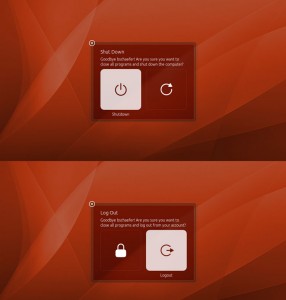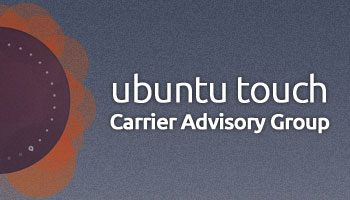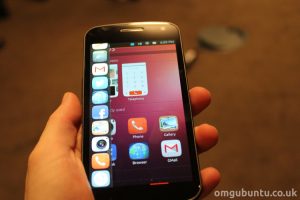Christmas time means two things: One, I have to reach for the big box of tree decorations on top my wardrobe, and two, I have to reach for the big box of cliches on top of my ‘really don’t like using’ cupboard.
You know the ones I mean: ‘What a year!’, ‘What a roller coaster!’; ‘Time flies when there’s so much news!”, etc, etc, ad nausem.
But don’t think me cynical; as the editor of one of the most popular Ubuntu-orientated news-site/web magazine, looking back at the year gone by gives me time to reflect on all that we’ve covered. Writing and responding to events means that sometimes I don’t have chance to process them properly.
So join me as I take a personal look back at the big stories, highlights and the odd lowlight of 2013. From controversial new display servers, to Mark Shuttleworth’s natty new beard, this year has been a rollercoas… (snip – ed).
January: Ubuntu Touches Us All
January kicked off with a palpable sense of anticipation. Canonical had, at the tail-end of December, sent a select band of journalists an invite to a an event ‘launching a new Ubuntu product’.
The day of the event rolled round fast. Having barely had time to postulate would it could be for, myself and former (one-off) writer Farran Lee were there, in the room; like a pair of misplaced penguins, amidst a huddle of journalists.
The air was almost sparking under the excitement by the time Mark Shuttleworth appeared in front of us, ready to put us all out of our collective impatience.
Baited breath? Check. Knotted stomach Check.
Mark took a assured step back, his face giving way to a knowing grin. With one hand he reached in to his inner jacket pocket and pulled out a small device. At that very moment, as my eyes locked on, it was nothing more than a simple Samsung Galaxy Nexus. In hindsight it was so much more: a small slab of history.
Facing the room Mark rocked his thumb on the side of the handset to wake the screen…

I could continue on about what the rest of January entailed for Ubuntu Touch, but the fact of the matter is that you all know. Canonical unveiled Ubuntu Touch; everyone went cray-cray; the device was shown off on the floor of CES; and people were prepared to list body organs on eBay to be able to get to try it.
As the month progressed we also learnt more about how developers could get involved in shaping the platform.
Other highlights
- Ubuntu One Music Store plugin was dropped from Rhythmbox in 13.04
- Unity got a stylish new window snapping effect, while workspaces were made optional
- We learnt that the Unity Dash was going to be powered by “Smart Scopes”
Feburary: Here’s We Go Again
Following the hectic hutzpah of January many were, a little unreasonably, expecting February to be a little quieter…
Ubuntu Touch continued to command column inches across the web for the second consecutive month. Along with more information on Canonical’s plans for mobile, we also got news that a Tablet-orientated version of Ubuntu Touch was in the works, while the release of a developer preview let users – assuming they owned a Nexus device – go hands on with the mobile OS for the first time.
While this early release was far from being perfect – and I’m happy to admit that that’s an understatement – it was a vital release. It sated curiosity, let developers get to grips with the gestures and interface interactions key to the touch project, and helped many realise that making a mobile OS isn’t quite as simple as running the regular Unity desktop on a small screen.
Touch aside, February’s other big news was the official arrival of Steam for Linux. A stonkingly huge vent that finally helped open – nay, destroy – the floodgates that previously prevented games developers from putting Linux on their roadmaps.
Other highlights
- We launched our brand new Android application
- We broke the news that Canonical were working on their own custom display server
- Plans to add a legal notice to the Unity Dash were confirmed
Notable lowlights:
- People were convinced that a scheduled HTC event would unveil the first Ubuntu tablet
- Physical Ubuntu Developer Summit (UDS) axed in favour of virtual hangouts
March: Mir Madness

With the previous couple of months making it clear that “convergence” was where Ubuntu’s future lay, the Compiz-powered Unity desktop began to look a little out of place. So it was no surprise to learn in early Match that Canonical planned to ditch it entirely in favour of a Qt/QML version. Unity Next – later to be renamed Unity 8 – would be built on the same codebase as the phone and tablet interfaces; a ‘desktop’ face would be presented when Unity 8 detected a screen of a certain size.
To power this magical auto-adpating Canonical confirmed what we had leaked the previous month (a post for which we received a lot of flak and accusations of misleading people, heh): they were making their own custom display server for mobile, and it is to replace the antiquated X.org server currently in use on the desktop.
The project, named Mir, was met by, for want of a better expression, revulsion from the wider Linux community. Their chief gripe was that it was not going to be based on Wayland.
Mir wasn’t the only dramatic change set to rock the Ubuntu desktop. Canonical, in effort to free developers from monotonous duties that would slow down the march towards mobile, announced that regular, non-LTS versions of Ubuntu were to only be supported for 9 months, down from the 18 months previous releases had been graced with.
Other notable highlights:
- Forbes name Mark Shuttleworth most ‘disruptive’ name in computing
- GNOME 3.8 released (related: Ubuntu GNOME made official flavour)
- Ubuntu Kylin announced as ‘official OS of China’
- Unity session dialogs revamped (see image)
Notable lowlight:
- Canonical engineers cite incorrect information as to why they couldn’t use Wayland
April: Raring Goes Live
Ubuntu 13.04 was released in April, but didn’t receive much in the way of fanfare. Whether it was the lack of whizz-bang new features, or the excitement over Ubuntu Touch stealing focus, the media seemed to have a hard time creating enthusiasm for it.
We weren’t oblivious to this, but to help make its release we did launch a small interactive mini-site for folks to share with those unsure of what Ubuntu offers.
Other notable highlights:
- Lightworks for Linux Beta (finally) saw release
- Canonical announced that Ubuntu CDs would only be sold for LTS versions
- Windows 8 users warned against using WUBI to install Ubuntu
May: Microsoft Gets Dismissed
 Mark Shuttleworth made an unexpected move in late May by marking the infamous ‘Bug #1′ – which sought to see ‘…the majority of the PCs for sale should include only free software’ – as ‘fixed’. His reasoning?
Mark Shuttleworth made an unexpected move in late May by marking the infamous ‘Bug #1′ – which sought to see ‘…the majority of the PCs for sale should include only free software’ – as ‘fixed’. His reasoning?
“From a competitive perspective, that broader market has healthy competition, with IOS and Android representing a meaningful share.”
Debates raged on for days as to whether this was a cop out or a sincere decision. Either way, it helped to put an end to the tribalism that has, for so long, undermined the Linux project. Being a fan is one thing, frothing at the mouth at the mere mention of Microsoft is another.
Other notable highlights
- HP quietly launched a new Ubuntu laptop
- Canonical announced eastern-European billboard advertising campaign w/Dell
Notable lowlight:
- Fake Ubuntu Phone handset goes viral
- Canonical axe Ubuntu billboard spotting competition after receiving just one entry
June: All About The CAG
 Ubuntu Touch was front and centre again in June following Canonical’s launch of a‘Carrier Advisory Group‘ (CAG) for Ubuntu Touch.
Ubuntu Touch was front and centre again in June following Canonical’s launch of a‘Carrier Advisory Group‘ (CAG) for Ubuntu Touch.
An international forum, the CAG offers mobile networks the chance to shape the development tot Ubuntu Touch by offering advice and feedback on its features and designs, helping to mould the OS to suit needs of their company in ways that competing mobile OSes do not.
It wasn’t just the heat from an unusually summery British summer that was felt by Ubuntu as anger over Mir-continued to boil. Kubuntu announced that it would not be shipping the display server as default, and was soon followed by a range of other Ubuntu spins, both official and unofficial.
Other notable highlights:
- Ubuntu One unified its services under one brand
- German council announced Ubuntu CD give way to help Windows XP users
Tomorrow – July – December
Tomorrow we look at the next six months of 2013. From the release of Ubuntu 13.10 and Ubuntu for Phones 1.0, to the grim honour of Canonical being awarded a ‘Big Brother Award’…

